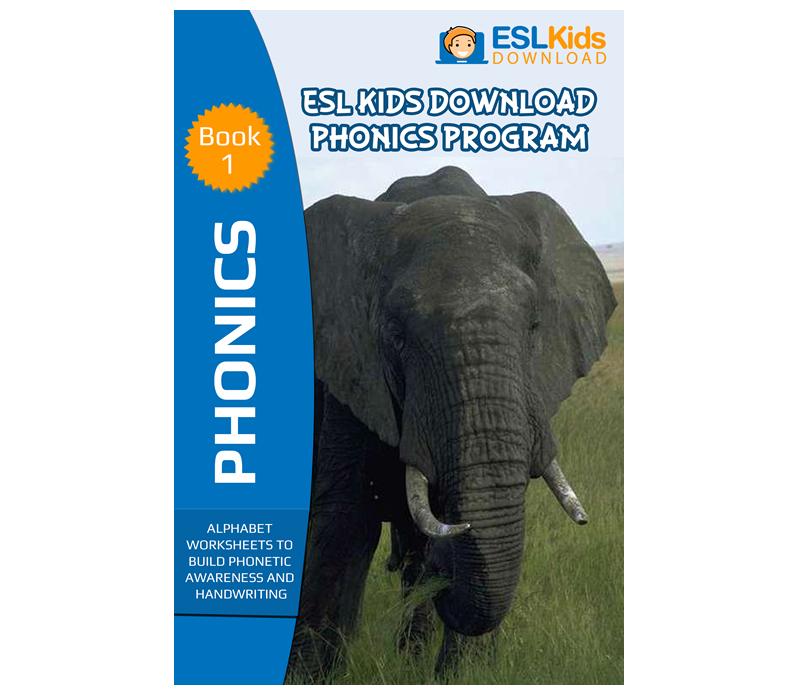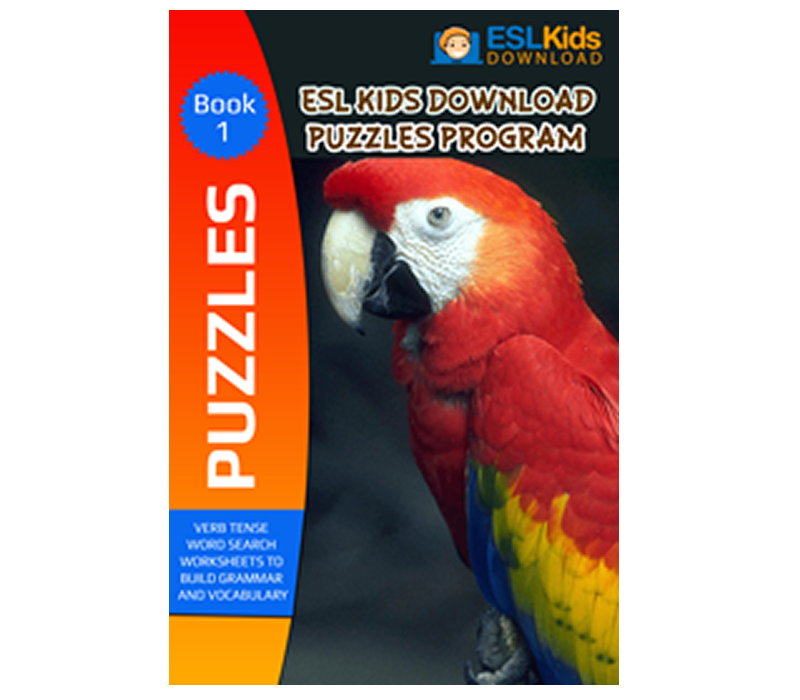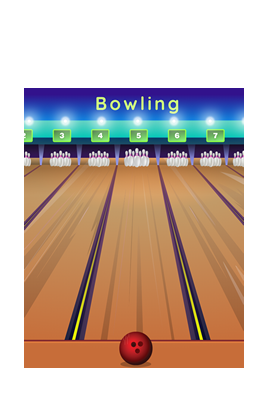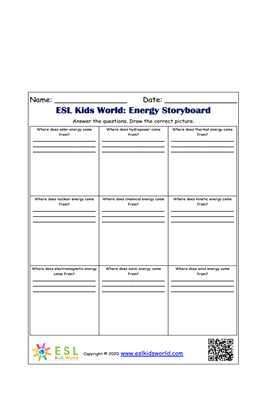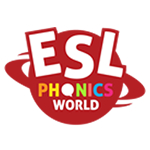Classroom Games - Games for the Classroom
The artistic nature of kids brains has them ready-made for games and fun activities. Our games easily appeal to young learners as they are based on real experiences in the classroom. Tested and proven to work, these games are a rich addition to your lesson plans and home learning. For over 200+ grammar video games or and 100's of vocabulary interactive quizzes click here. Looking to master English grammar? Take a look at our grammar rules for teachers.
A: Alphabet Sentence Spelling
Write a sentence on the board. Use any grammar or vocabulary point and have the students spell the sentence whilst passing a ball and sat in a circle. Include a time limit depending on the length of the sentence. For example: The boy is running. This should take twenty seconds! It is a team game against the clock and the teacher. Students must spell the sentence correctly and then say the sentence as a group within the time limit to win the point. If they fail to do so the teacher wins.
B: Bingo
Bingo can be used with any vocabulary point. Provide a blank Bingo sheet and have the students write or draw randomly in the boxes. When completed, the teacher or another student will call out the target vocabulary used in the game. The winner is the first student to cross out all the numbers or letters on the sheet.
B: Basketball Bonanza
Students will ask questions in a clockwise manner. The grammar or vocabulary point can be anything. For example: What do you do in the morning? I have my breakfast. The first student to answer the question after the teacher says ‘begin’ gets to stand up and throw the ball into the basket. They can answer a further question to attain an extra throw of the ball, but if they are wrong they lose both these chances.
C: Charades
Divide the class into two teams. One student from each team comes to the front of the classroom. The teacher whispers a word/sentence or shows a flashcard to the two students and they act it out. The first team to say the correct word gets a point. For example: cat, dog, sheep...
D: Dancing with Ostriches
Have two teams and select two students. Then attach a flashcard to their backs. The purpose of the game is to look at the other student's flashcard and say the word before they see yours. Include a thirty second time limit, so that students are active throughout.
E: Extreme Spelling
Have two teams and provide the students with two bags of letters ranging from A to Z. Then write a sentence on the board. The teams have to copy this by choosing the correct letter squares in the bag you provide them with. When they have constructed the sentence correctly the team have to read it together in order to get the point. It is important to provide the students with enough letters, so it would be a good idea to photocopy adequate amounts. Say five copies of each letter. Repeat for more rounds.
F: Flashcard Whispers
Similar to Chinese whispers. Elicit the vocabulary you want to teach the students and then have them sit in a circle. Whisper a word or sentence depending on the grammar point into the nearest student’s ear and then have them repeat the same sentence or word to the person sitting next to them. Put five to ten flashcards face-up on the floor. The final student must stand up and hit the correct flashcard saying the sentence or word you originally said to win the point.
G: Go Fish
Each student chooses two flashcards each. Ensure the students don’t show anyone their flashcard. Then, choose a student and ask "Do you have a pencil?" Students must answer “yes” or “no” depending on the question asked. If the question is correct that student wins the flashcard. The student with no cards is out.
H: Hangman
Review words from previous classes. The teacher chooses a word and writes the same number of spaces on the board. Students have to guess a letter one by one. If the student guesses correctly, write that letter in the space. If they guess wrongly, start drawing a hanging man and have the next student guess a letter. Let the first student to guess the word take the teacher's place.
I: I Spy with My Little Eye
Have a student or yourself say "I spy with my little eye something beginning with W". Students have to try to guess the object or thing within the classroom. For example: W for window. Clothing, stationery and colours work well for this game.
J: Jeopardy
Put various categories on the board ranging from 100 to 500 points. The categories can be verbs, geography, history, films and art depending on the level of your students. Divide the class into two or more teams and allow one team to answer the first question. If they answer the question correctly the team receives the total amount of points for that question. If they do not answer the question correctly, the other team gets the opportunity to answer it. Play until there are no more questions. The team with the most money at the end of the game wins.
K: Killer
This game gives students the opportunity to talk freely. The teacher chooses one or more students in the class to be “killers” by touching their shoulders whilst everyone in the class has their heads down and eyes closed. During the game the “killers” try to kill as many students as possible by winking at them. If a student is "killed" he or she has to go back to his seat and sit down. That person is now "dead". The student who asks the most questions to the most people wins the game. Have them write these down before the start of the game, so that the game remains fluid and interesting.
L: Last Letter First Letter
Write a few words on the board to demonstrate the activity to the students. For example: Apple – egg – goat etc... When you have done this ask one student to continue the letter chain for at least five words and then change students again so that all students get a turn. Provide a time limit of five minutes to make the game more exciting.
M: Memory Game
This activity exercises the power of memory. Photocopy two sets of the same flashcards. Then place the flashcards face down on the table or floor. Students will individually turn the flashcards over. If the cards are the same, they keep them. However, if they are different they have to turn them face down again and sit down. The student with the most pairs of flashcards at the end of the game is the winner.
N: No, Yes, Maybe, and I don’t Know
The rules are simple. Have one student sit with their back to the board and write down ‘No’, ‘yes’, ‘maybe’, and ‘I don’t know’ on the board. Have all the students write five questions each and then ask this student as many questions as possible before they say one of the above words. If they do say one of the four words above that student is out of the game. Ensure you time each student and everyone has a turn. The person who stays in the game longest wins. Penalise hesitation or slow answering.
O: On My Body
Put students into pairs and provide them with one or two sheets of A4 paper. Then have the students write body part vocabulary words on this paper. When they have done this get the students to cut the words up into single pieces, so that they can stick tape onto the back of each piece. Have the students stand up and then stick these body part labels on their partner. The first pair to finish and correctly stick the body parts in the right place win the game.
P: Pictionary
Put students into two or more teams and then have a student come up to the front and show him or her a flashcard. That student should then draw the flashcard picture on the board. The first student to guess the picture gets a point. It is beneficial to ask students to make full sentences (depending on the grammar point) when guessing the picture.
Q: Question Jenga
To play this game you will need Jenga. Divide the class into two teams and have the teams ask each other questions. The questions can depend upon your own vocabulary or grammar point. Write these questions on the board if you have a lower level class. For example: How often do you.... If a student gets a question right he or she can take one piece from the Jenga tower or choose a classmate on the opposing team to play against. In doing so he or she will play ‘Paper, scissors, rocks' against the other student. If he wins, the other student has to take two pieces from the Jenga tower, but if he loses the ‘Paper, scissors, rocks' battle he will have to take two pieces. The team which knocks the Jenga tower over first loses the game.
R: Reading Readiness
Choose two or three pages in the student’s book which provide enough vocabulary for a reading exercise or give each student a short story. Then get the first student on your left to begin reading and continue in a clockwise fashion. Students should only read one sentence before the next student reads the next. Allow the students to read the whole story or passage first before you implement the buzzer. When they have read the story once you can then buzz a student if they make a pronunciation mistake or hesitate for too long. The last student remaining wins the game.
S: Sticky Madness
Divide the class into two or three teams and draw a 4x4 grid on the board. You can put any vocabulary word in each of these squares. Then, ask a student to ask a question to the opposing team. This student cannot answer the question until he or she has thrown the sticky ball at the grid on the board. The student would then answer to get point for their team. The game works very well with adverbs of frequency. For example: What do you usually do on Monday? I usually play football on Monday.
T: Teacher Says...
Play Teacher Says as a review using old vocabulary from previous lessons. It generally works better with actions, prepositions of place and relia (real things in the class). For example: 1. Teacher says “Run” Students run. 2."Run" Students do not run. When a student makes a mistake, the teacher gets a point.
U: Under, On, In and Behind
Pre-teach ‘Under, on, in and behind’. Then tell the students what you want them to do. For example: “Put your head in your bag”. The game is very funny and allows the whole class to learn through actions. All students must do what the teacher says otherwise the teacher receives a point, not the class. Give a point for each correct action the students perform.
V: Volleyball Vocabulary
Divide the class into teams of four and tie a rope between two chairs in the middle of the classroom. Provide the students with a balloon. Students have to say a word every time their team hits the balloon. If they do not the other team receives a point. Play for a maximum of three points so that other teams get the chance to play regularly. Ensure that the balloon is hit over the rope. Shots below lose a point for that team.
W: What’s the Word?
Divide the class into two teams. One student comes to the front of the classroom and sits with his or her back to the board. The teacher then writes a word or sentence on the board and his or her team has to describe this word within thirty seconds to get the point. If not the opposing team gets the point.
Y: Yes and No
Demonstrate the game to the class by asking them closed questions. The students should answer using only ‘Yes’ and ‘No’. For example: Do you like candy? Yes! Then divide the class into two groups and tell them to ask you as many closed questions as they can. Yes = one point and No = two points. The team with the most points at the end of the game wins. If a student repeats a question that has already been used deduct one point from their total score every time this happens.
Z: Zero
Choose one student. Ask them to think of a topic and talk about it for one minute without hesitation and grammatical errors. If the student completes the full minute they receive a point. However, the rest of the class must listen carefully to spot any grammar mistakes during this time. The student who notices a grammar mistake must ask the teacher to stop the clock and then tell the class the mistake that student made whilst providing a grammatical solution. If they are correct, they then continue talking for the remaining minute to earn the point, but if they are wrong they lose a point and the original student who was talking continues their one minute topic. This scenario can happen several times in a minute, thus allowing a number of students to talk within in a one minute period.
ESL Materials and Activities
Printable Materials
ESL Kids World offers free printable pdf worksheets, board games, gap-fill pages, text-maze puzzles, word scrambles and more.
Classroom Games
Classroom game ideas and activities for learning and practising English. We have practical ideas to make your teaching more fun.
Kids Activities
These include video stories, worksheets, powerpoint, handwriting pages, colouring printables, flashcards, and Jeopardy quizzes for classroom use.
Interactive Quizzes
Our interactive games include, grammar questions, vocabulary quizzes, multiple choice assessments, and fun games to learn English.


